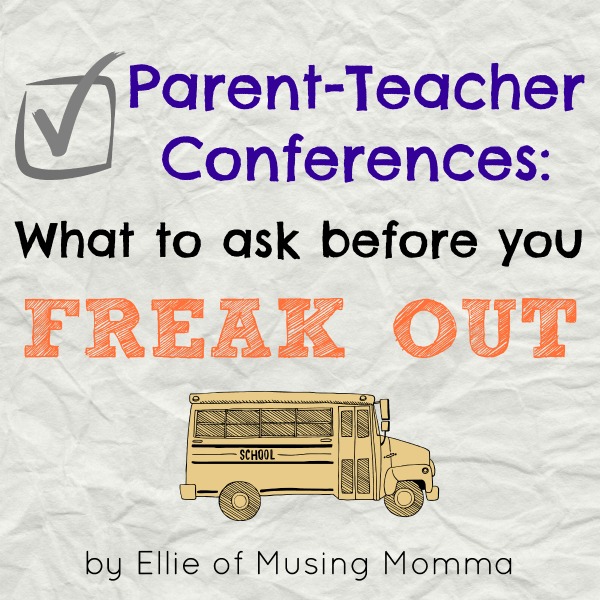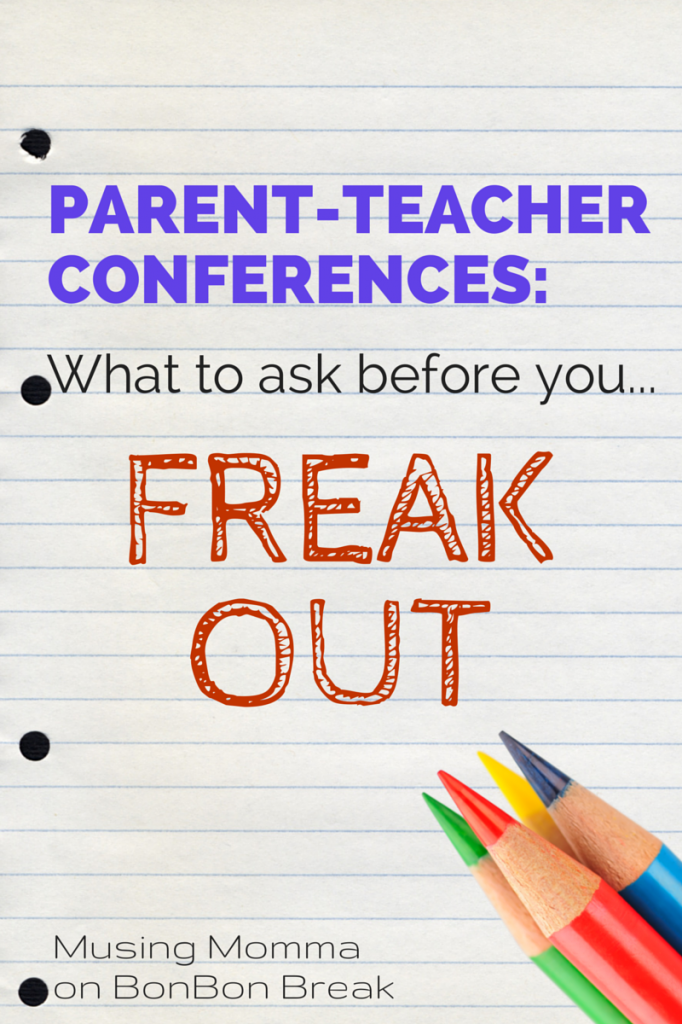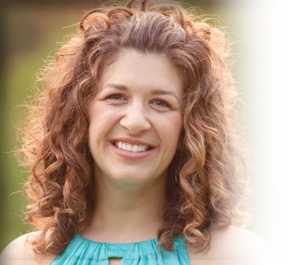Parent-Teacher Conference Tips: What to Ask Before You Freak Out

![]() When my oldest brought home his first report card from kindergarten last year, the teacher comments read something like, “Needs to work on not talking during class. I’m concerned Zip will start to miss out on important instructions.” Here we go, I thought. For two years I had been (periodically) concerned about my kiddo’s non-stop chatter and boundless energy, but I had taken a wait-and-see approach. Wait and see how things go when he gets to kindergarten. Wait and see how he adjusts to school. Wait and see what the teacher says.
When my oldest brought home his first report card from kindergarten last year, the teacher comments read something like, “Needs to work on not talking during class. I’m concerned Zip will start to miss out on important instructions.” Here we go, I thought. For two years I had been (periodically) concerned about my kiddo’s non-stop chatter and boundless energy, but I had taken a wait-and-see approach. Wait and see how things go when he gets to kindergarten. Wait and see how he adjusts to school. Wait and see what the teacher says.
And here we were. There was no denying something as official as a teacher’s report card comment.
I readied myself for the parent-teacher conference that followed the first report card. I dressed like I was going to a job interview, ‘cause momma was getting down to business. My husband and I sat down across from Zip’s bubbly kindergarten teacher (is there any other kind?), our knees bumping our chests as we folded ourselves into those tiny plastic chairs made for pint-sized people.
Zip’s teacher reviewed his academics – no concerns there. Well, that’s good! But my psychology background told me that bright kids with ADHD can often compensate in the early grades. Is that what we were looking at?
“Zip is definitely a talker,” she started. “We’re working on not talking when I’m talking, and remembering to raise his hand and not call out. But that’s typical for kindergarten. Half of my class is working on that.”
Ah, did you hear that? Half of my class is working on that. This very important caveat to her report card comment put Zip’s behavior in context for me. If she hadn’t said so, I may have forgotten to ask my son’s teacher a critical question when students exhibit “something to work on”:
- How does my child compare to the rest of the class? Are other students struggling with this too?
Because what I was worried might be a big issue was – from his teacher’s perspective – simply a growing edge for my child, and one that put him squarely in the normal range of kindergartener behavior. I’m not a teacher, but it seems to me that when it comes to report cards and parent-teacher conferences, a teacher’s job is to let us know what our kids are doing well and where they need to grow. The fact that a teacher brings up an issue doesn’t mean something is significantly wrong.
So, if your child’s teacher raises a concern or mentions an area your child needs to work on, don’t freak out just yet. Ask a few questions:
- How does my child’s behavior compare to other students? Is this something you see often?
- Is it interfering with my child’s learning, relationships with other kids, or self-esteem? If my son’s talking in class was negatively impacting his academics, causing problems with peers, or leading him to feel badly about himself, I would have seen more cause for concern. But in fact he was thriving at school!
- Is this a behavior/academic issue/etc that you are really concerned about? Should I be concerned? (And, if so, what is the next step?)
- Are there things you can do in the classroom to help? Zip’s teacher was awesome. She took it upon herself to find ways to ensure he was successful in her room, and told us she wanted to find ways to keep Zip challenged and engaged during class so that he was less likely to get off-task. She also had a cue to remind him to listen to her when she was speaking.
- Is there anything we can do at home to help?
Even with a solid background in child development, textbooks didn’t prepare me for all of the strange things kids do or and the very wide range of “normal” behavior. With a classroom full of students, teachers hold a valuable perspective on whether a child’s behavior is typical. Through preschool and now early elementary school, I’ve found my boys’ teachers to be a wonderful resource when I’ve been concerned about something.
A couple of weeks later, Zip and I were in the pediatrician’s office for his 6-year check-up. He was his usual exuberant self – bouncing around the room, chattering away a mile a minute, answering the doctor’s questions with his own questions. “Is he always like this?” his pediatrician asked. “Yes,” I said. But with his teacher’s feedback in the back of my mind, I assured her my son was doing just fine.
What questions would you add to the list?
PIN IT FOR LATER:

 ABOUT ELLIE: Ellie blogs at Musing Momma, where she shares honest and personal stories ranging from reflections on motherhood to tips for raising healthy and (relatively) well-behaved kids, and from research on child development to fun family activities. As wife and mother in a multiracial family, she often writes about the intersection of race and family, and her experience raising two African-American/white sons. Ellie has a Ph.D. in psychology and counseled children and families for several years before changing paths to spend more time with her family. She resides in central Pennsylvania with her husband and their two adorably mischievous boys, ages 3 and 7.
ABOUT ELLIE: Ellie blogs at Musing Momma, where she shares honest and personal stories ranging from reflections on motherhood to tips for raising healthy and (relatively) well-behaved kids, and from research on child development to fun family activities. As wife and mother in a multiracial family, she often writes about the intersection of race and family, and her experience raising two African-American/white sons. Ellie has a Ph.D. in psychology and counseled children and families for several years before changing paths to spend more time with her family. She resides in central Pennsylvania with her husband and their two adorably mischievous boys, ages 3 and 7.
Follow Ellie on Facebook | Twitter | Pinterest
CONTINUE READING IN THE FAMILY ROOM
ELLIE of MUSING MOMMA wrote this post exclusively for Bonbon Break Media, LLC.





